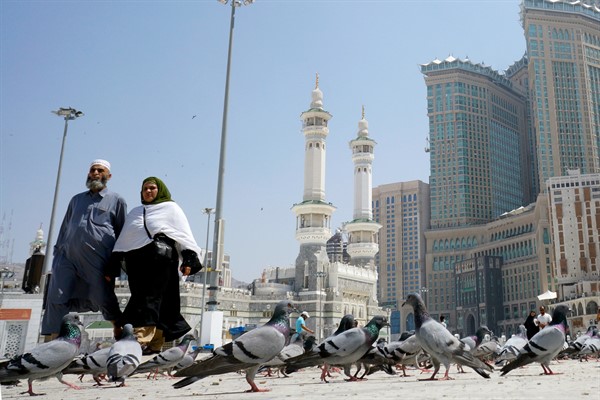Saudi Arabia announced harsh new austerity measures last week, including the suspension of a cost of living allowance for public workers and the tripling of its value added tax, from 5 percent to 15 percent. While the new policies are intended to plug a gaping hole in state finances amid the coronavirus pandemic and after a historic collapse in oil prices, they are risky for an absolute monarchy that has worked to guarantee affluent lifestyles for its citizens in exchange for their obedience. The government’s response appears to place a disproportionately heavy burden on everyday Saudis rather than the political and economic elite, which could foment popular unrest.
While the kingdom has weathered financial uncertainty in the past, COVID-19 and the accompanying crash in oil markets are among the most dire economic threats Saudi Arabia has ever faced. With oil revenues plummeting amid rock-bottom global demand, Saudi Finance Minister Mohammed al-Jadaan recently announced that the kingdom will have to borrow $58 billion in 2020 alone, and more painful spending cuts could come later in the year.
Riyadh has even been forced to cut $8 billion from Crown Prince Mohammed bin Salman’s ambitious reform blueprint, known as Vision 2030. That will hinder Saudi Arabia’s plans to diversify its economy away from its traditional dependency on oil. MBS, as the crown prince is widely known, has focused particularly on the futuristic new city of Neom, a $500 billion plan to build a sci-fi-esque metropolis on the Red Sea coast. Yet those plans have met resistance from nearby residents, and a member of the local Huwaitat tribe was allegedly killed by security forces last month after refusing to give up his land. A Saudi source recently told AFP that he would “be surprised if cuts are not made” to the project.

